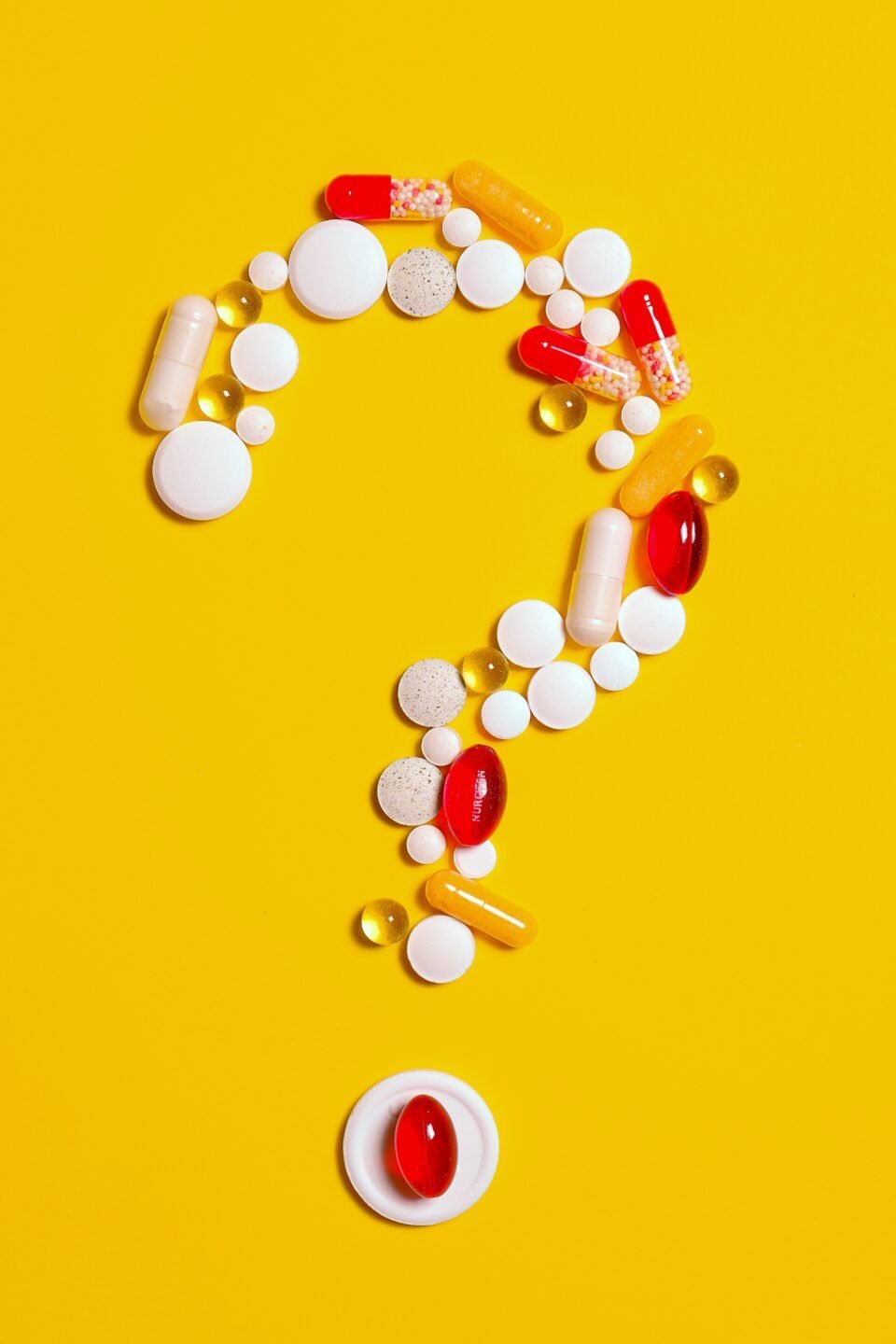
What is Menopause?
Menopause is a natural phase in a woman’s life that marks the end of her reproductive years. Should you be using bioidentical hormone replacement therapy (BHRT)? While it is a normal transition, menopause brings along a range of symptoms that can significantly impact a woman’s quality of life. Hot flashes, emotional changes, brain fog, dryness, weight gain, insomnia, night sweats, and painful intercourse are some of the common symptoms experienced during this time.
Additionally, the vaginal pH undergoes changes, usually dropping from 5.5 to 3.8-4.5, making it important for women, especially those who engage in sexual activities, to be mindful of introducing new bacteria and using lubricants that may not be compatible with their bodies.
Many women seek ways to eliminate these symptoms and improve their overall health during menopause. Some of the areas they focus on include maintaining skin tone, preserving muscle mass, managing fat distribution, boosting libido, alleviating depression and mood swings, regulating cholesterol levels, and reducing the risk of heart disease.
Historical Narrative
However, there has been a negative historical narrative surrounding Hormone Replacement Therapy (HRT) that has influenced women’s choices and healthcare providers’ prescribing practices. The Woman’s Health Initiative (WHI) study conducted in 2002, which evaluated HRT’s role in preventing cardiovascular disease, osteoporosis, breast cancer, blood clots, and dementia among 64,000 participants, halted prematurely after five years. The study’s findings reported a 26% increase in invasive breast cancer, leading to misconceptions and fear surrounding HRT. However, the data was not extrapolated or communicated correctly to the media, resulting in a misrepresentation of the risks. Lawyers and TV capitalized on this situation, further fueling the narrative against HRT, leading to physicians’ hesitancy in prescribing it and women’s reluctance to use it. It is crucial to acknowledge that poor reporting and inconclusive study results created a narrative that has persisted for decades, affecting women’s access to potentially beneficial treatment options.
Filling the Gap & False Narratives
Big Natural recognized an opportunity after Premarin was taken off the market in 2002. Premarin made false claims of: lowering cardiovascular disease, Alzheimer’s and dementia risks and not increasing breast cancer risk. Big Natural stepped in and introduced Bio-identical Hormone Replacement Therapy (BHRT).
However, it is crucial to be cautious of false narratives fueled by social media, celebrities, and some product providers. One example is a textile engineer who acquired an HRT Clinic, claims the female body converts fat to testosterone and higher testosterone levels make women “feel younger”. These claims lack credible evidence. Similarly, the idea that the body doesn’t need estrogen but requires testosterone is misleading and raises questions.
Can Anyone Help?
Use caution in your search since anyone who is a doctor or licensed to practice can administer hormone replacement, including anesthesiologists, general practitioners, and some nurse practitioners, depending on the state’s requirements. It is very common, especially post Covid, for doctors to leave their prior stressful job to make money in cosmetic enhancements and hormone replacement therapy.
They may have solutions but may not have the best answers for your concerns and rely heavily on the information they were given by the classes given by Big Natural to help them build their business. They promise similar benefits as Premarin, such as: prevention of cardiovascular disease, osteoporosis, breast cancer, blood clots, and dementia, but without the long-term side effects. Be cautious of promises to enhance sex drive with higher testosterone levels.
OBGYN/Endocrinologist
In terms of relief options, it is important to consider the condition you want to treat and reach out to your doctor. OBGYNs may not have the most extensive knowledge in this area, whereas endocrinologists are better equipped to provide specialized care. However, finding available appointments with endocrinologists can be challenging due to their limited availability.
Prescriptions
Premarin, an estrogen medication, is still prescribed and effective for treating symptoms such as hot flashes, night sweats, and vaginal symptoms. There is a new drug called Veozah, which is a repurposed version of Gabapentin originally used for pain relief and seizures. Premarin is still prescribed to approximately 1 million people and is marketed as safe when used with Progestin. However, it is not recommended for long-term use.
Alternatives
If you are looking for an alternative to an FDA approved drug, the “bio-identical” market has gained a lot of popularity since the 1990s. However, it is important to note that these hormones are not truly identical to the ones naturally produced in the body. While the starting compounds are derived from plants or animals, they undergo chemical alterations, resulting in hormones with different isotopes than those found in the human body.
Estradiol, a hormone produced by the ovaries, can be obtained through a semi-synthesis process using yams or soy. While it is considered plant-based, it is not “identical” to the hormone produced by the human body. Therefore, claims of it being 100% safe should be evaluated critically.
UPDATE 10-31-23: “Body Identical” and “Bioidentical” imply they are natural. This is a marketing ploy. These terms imply they are ‘safe’ since the terminology comes across as the same hormones in your body. If hormones were the same or similar, it does not mean a hormone is ‘safe’. Body Identical and Bioidentical hormones are made in a lab by semi-synthesis. In order for estradiol to be ‘natural’ we would be grinding up human ovaries to use.
@DrJenGunter
https://vajenda.substack.com/
Book Details
Delivery Methods
When it comes to hormone delivery methods, oral estradiol (pill or lozenge) has certain considerations. It passes through the intestines, liver, and then enters the bloodstream, but the process dilutes the hormone, requiring higher doses of estradiol. The liver also produces estrone, a weaker estrogen that can trigger the liver to produce proteins that cause blood clots. Oral estradiol can increase the levels of sex hormone-binding globulin (SHBG), which binds more testosterone, reducing its effectiveness and potentially impacting libido. It may also have inconsistent levels of estrogen, leading to fluctuations and potential impacts on mood, as well as increased inflammation and cardiovascular disease risk.
Other delivery methods for hormone therapy include gels, sprays, and emulsions. These are applied daily, typically to the lower abdomen and thighs. However, there are varying opinions on whether these products should be applied to the arms. It is important to avoid washing the area for an hour after application and refrain from applying moisturizers, sunscreen, or engaging in skin-to-skin contact that could transfer the product.
An increasingly popular delivery method is the pellet, about the size of a cooked grain of rice, inserted under the skin around you lower hip area or buttocks. This method bypasses the direct delivery of hormones into the bloodstream and avoids changes in the liver with the use of oral hormone therapy. Both estradiol and testosterone are available in the form of pellets and slowly released into the bloodstream, typically lasting 3-4 months. It’s a minor invasive procedure that requires 3 days of no exercise due to the incision.
Injectables are also available but very hard to find a local provider that will offer that option for you. Part of the reason is there is more money in creams, pellets and pills because injectables can be covered by your insurance. The potential downside is you will need to inject yourself daily to get optimum hormone leveling. The good thing is you can get smaller needles which are less painful!
Progesterone
Progesterone is an essential component of hormone therapy when using estradiol. A lot of research points to the use of Progesterone with Estrogen in order to create the correct hormonal balance in the body, prevent increased lining of the uterus, having a period, and curb the side effects of HRT. It is used to protect the lining of the uterus from the effects of estrogen and can prevent menstrual bleeding. The correct dosage of progesterone is important to ensure effective and safe treatment.
Am I Estrogen Dominant?
Estrogen dominance is a condition that occurs when there is an imbalance of estrogens in the body, whether it be an excess of the right or wrong kind of estrogens. This imbalance is often accompanied by a lack of progesterone. Understanding how these hormones are broken down and metabolized in the body is crucial, but a detailed discussion of that topic is beyond the scope of this article and should be discussed with your doctor. This is where finding the right provider where you can get tested regularly (if needed) and have knowledgeable conversations about what you’re experiencing in order to get the right balance of hormones.
Vitamins, Supplements, Body Cleanse?
In addition to hormone therapy, there are other vitamins and supplements marketed for menopause management. It is essential to exercise caution and do thorough research before purchasing and consuming these products. Many businesses sell vitamins and supplements along with hormone replacement therapy and promise better health. They may also try to convince you to purge your body of “bad” estrogens with a full body cleanse that requires a very expensive purchase of pills.
Iodine, for example, has some evidence supporting its potential benefits in menopause. However, individuals with Hashimoto’s should avoid taking it. Iodine plays a role in the function of the thyroid, ovaries, brain, and breasts. Insufficient levels of iodine can lead to high levels of estrone and estradiol. Furthermore, studies have shown that iodine may have anti-cancer properties in breast cells.
Conclusion
It is important to remember that hormone therapy is not a quick fix. The lower the dose of hormone therapy, the longer it takes to take effect in the body. It typically takes 4-8 weeks for noticeable effects, and even longer with lower doses. Patience is key during this process.
Menopause is a significant phase in a woman’s life that can present various challenges. While seeking treatment options, it is essential to consult knowledgeable healthcare providers, and be cautious of misleading information. By gaining a better understanding of menopause, its symptoms, and available treatment options, women can navigate this transitional phase more effectively and improve their overall well-being.
UPDATE 10-31-23: “Body Identical” and “Bioidentical” imply they are natural. This is a marketing ploy. These terms imply they are ‘safe’ since the terminology comes across as the same hormones in your body. If hormones were the same or similar, it does not mean a hormone is ‘safe’. Body Identical and Bioidentical hormones are made in a lab by semi-synthesis. In order for estradiol to be ‘natural’ we would be grinding up human ovaries to use.
@DrJenGunter
https://vajenda.substack.com/
Book Details
Want More?
If you want more, or simply want to listen or watch us, check out our podcast and YouTube here!
Sources
New study finds kelp can reduce level of hormone related to breast cancer risk
What is Estrogen Dominance As A Hormonal Imbalance in Women?
The Menopause Manifesto: Own Your Health with Facts and Feminism by Dr. Jen Gunter
Estradiol Side Effects: Capsule, Cream, Vaginal Insert
New study finds kelp can reduce level of hormone related to breast cancer risk
The North American Menopause Society Video Series 2023
International IMS Menopause Society
International Society for the Study of Women’s Sexual Health
Susan Davis Is testosterone the answer to low libido | INTERVIEWS WITH MARLA SHAPIRO – for women









